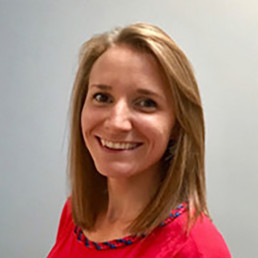
Written by Gemma Hargraves
Gemma Hargraves is a Deputy Headteacher responsible for Safeguarding, Inclusion and Wellbeing.
I recently attended a national Pupil Premium Conference in Birmingham. The first speaker asked for people to raise their hands if they have personally experienced poverty – I have not, so I did not raise my hand. The number of people who did was striking. I was reminded of my experience at Bukky Yusuf’s session at the first Diverse Educators conference when we were asked how many boxes we tick in terms of diversity. I am very aware of my luck, my privilege, and whilst my father would have proudly proclaimed his working class roots he made sure I had a comfortable upbringing never wanted for anything.
Spending the day surrounded by educators who care deeply about supporting students and families eligible for Pupil Premium I was struck by the need to get to know these students at my school better. Since joining the school in September I know some very well, for various reasons, but others I have not met yet. Sean Harris’s keynote was compelling about rewriting the story of disadvantage in schools and communities.
We cannot assume all students in receipt of Pupil Premium funding face the same challenges. When I say “we” I mean myself, as Deputy Headteacher in charge of Pupil Premium strategy, but all teachers and staff in schools. Vital here are Form Tutors who see the students every morning and offer a caring and consistent welcome. Also, Receptionists, canteen staff, all teachers and leaders in schools. “We” here should also mean policy makers – those who decide who qualifies for Pupil Premium, and Service Pupil Premium, and who doesn’t but who also need to be supported (of course this is all students but I am especially thinking of those who are only just above the Pupil Premium qualifying line, disadvantaged sixth formers, of young careers, of others with additional needs). We must all endeavour to know these pupils as individuals and to give them opportunities to shine.
There are practical and logistical challenges of course. Schools Week this week reported that school will have to wait until May to find out their pupil premium funding allocations for 2024-25. The data was supposed to be out in March but had been hit by a ‘problem’ with identifying eligible reception pupils. This clearly makes it more challenging for schools to budget and perhaps recruit but we just not lose sight of the children affected. Similarly, when focusing on outcomes, Progress 8 or some other measure we must remember there are individual students and families behind these numbers.
Of course, our approach must be intersectional. A child is not only “Pupil Premium” they may also be a devout Muslim, disabled, a child of LGBT+ parents or indeed all or none of these but we will only know and be able to celebrate this if we get to know the pupils and families better. We must find funds to support them in ways they need, not what we assume will be generically helpful.
And while literacy is of course important and key to probably every Pupil Premium strategy, and improving educational outcomes can be transformative, we must also focus on cultivating a sense of belonging, confidence and joy. I’ve been doing a lot of work on inclusion, diversity and belonging in schools over the past few years, but this conference gave me a renewed focus on poverty and inequality. In the spirit of pledges from previous WomenEd and DiverseEd events, I am now committing to spend more time reading, thinking, and researching about poverty and inequality in my community but also, of course, getting to know the students and families so they can truly flourish.
1 Comment
Comments are closed.


Great blog Gemma. Lee Elliot Major, professor of social mobility at the University of Exeter has done some interesting work in this area (Equity in Education) suggesting we need to do more to celebrate the achievements of the working classes and confront social class biases in the classroom, it reminded me of Moll and Greenbergs work about funds of knowledge and where they are located. Major suggests a ‘deep listening campaign’ to understand the assets of the local community and the parents the school serves.